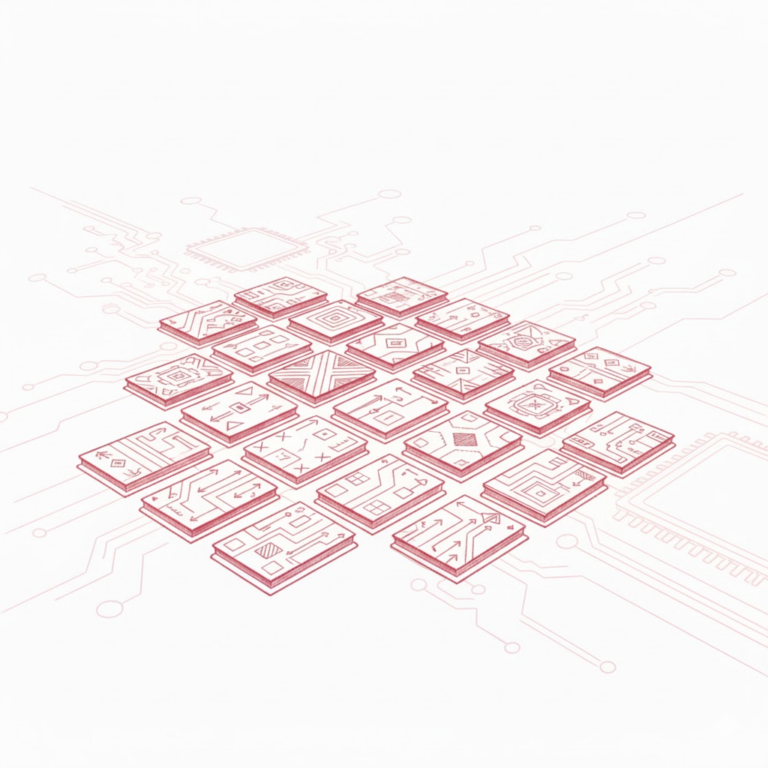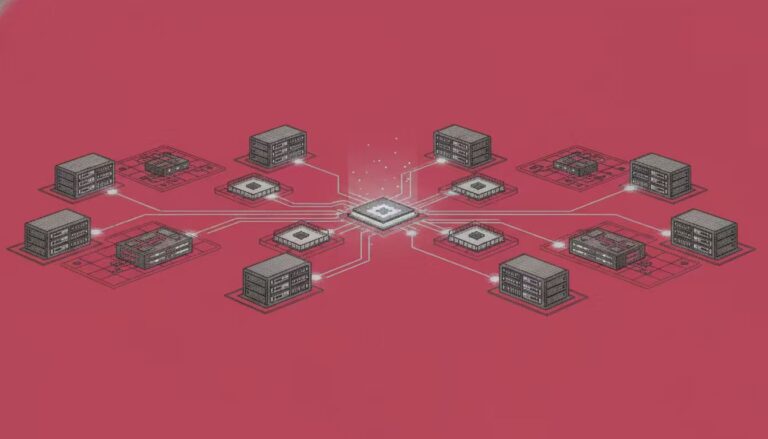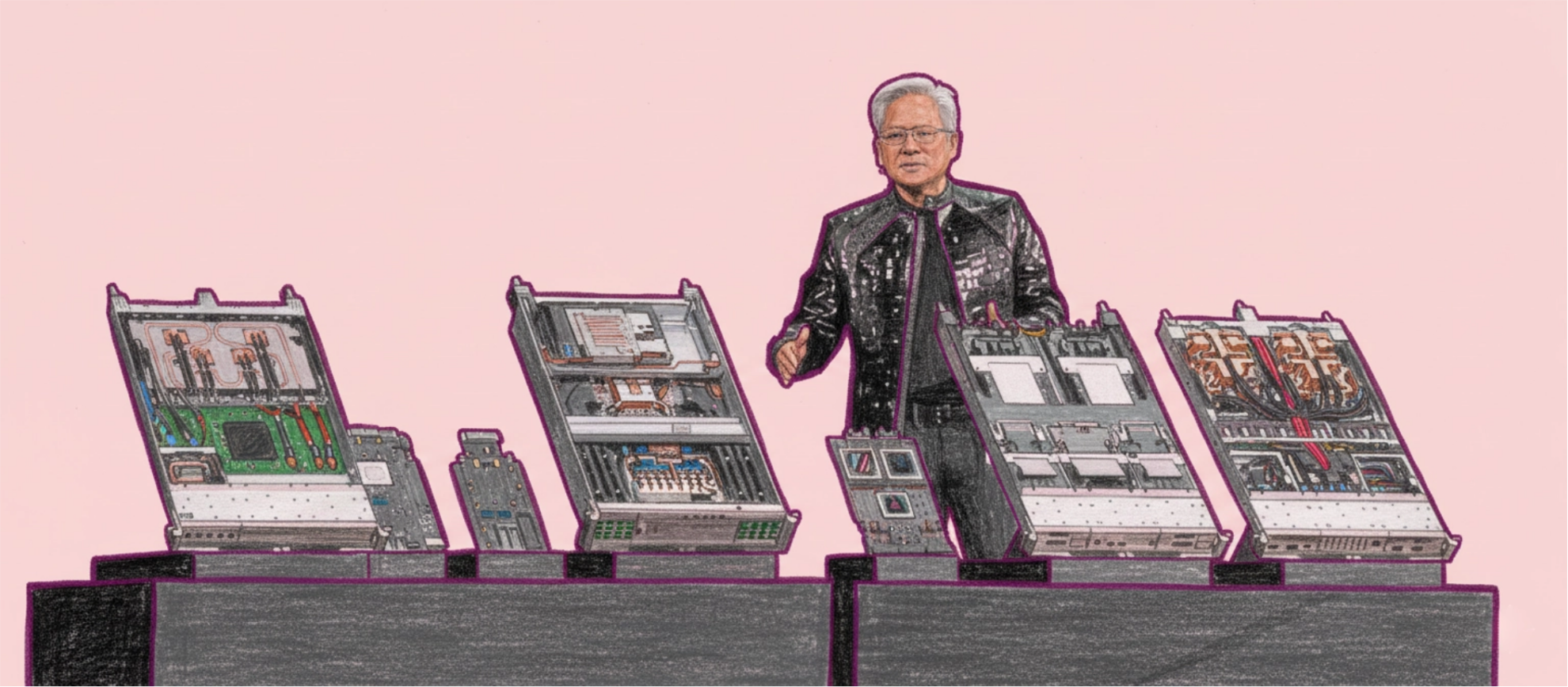Command Palette
Search for a command to run...
Nvidia Calls on Global Gamers to Contribute Their Computers and Computing Power to Fight the Epidemic
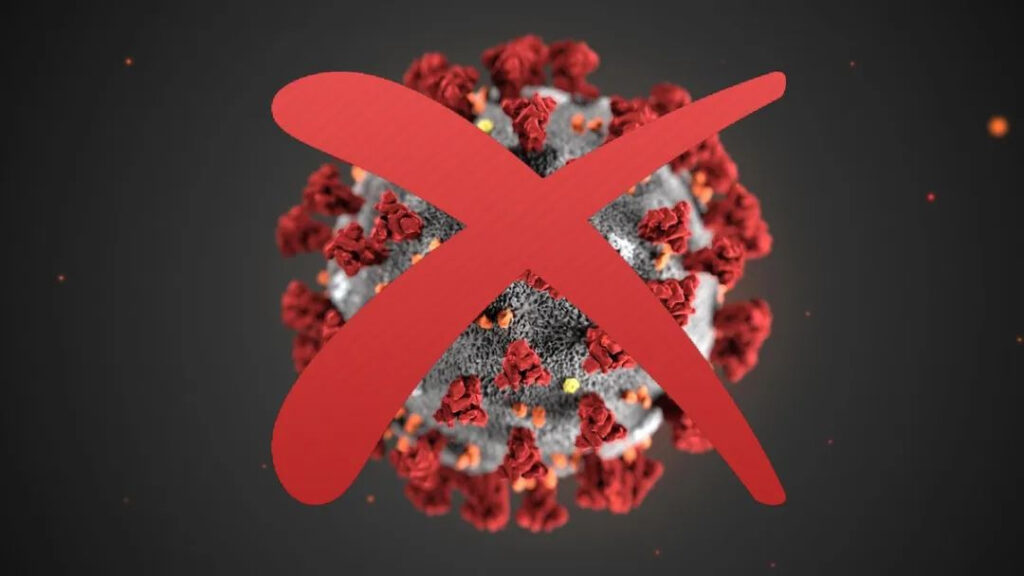
As long as your computer has a GPU, it can be used to help fight COVID-19.
Recently, NVIDIA called on PC game users to contribute their GPU computing power and join the fight against the new coronavirus by joining the Folding@home project.
As long as you make sure your computer is turned on and running the relevant software, you can contribute to the scientific research on viruses.
Personal spare time resources, contributing to scientific cause
Fighting the epidemic requires not only the contribution of manpower and material resources, but now you can also donate computing power.
Nvidia said on Twitter that it hopes PC gamers around the world will download and run the Folding@home application and use their idle GPU resources to join the fight against the new coronavirus.
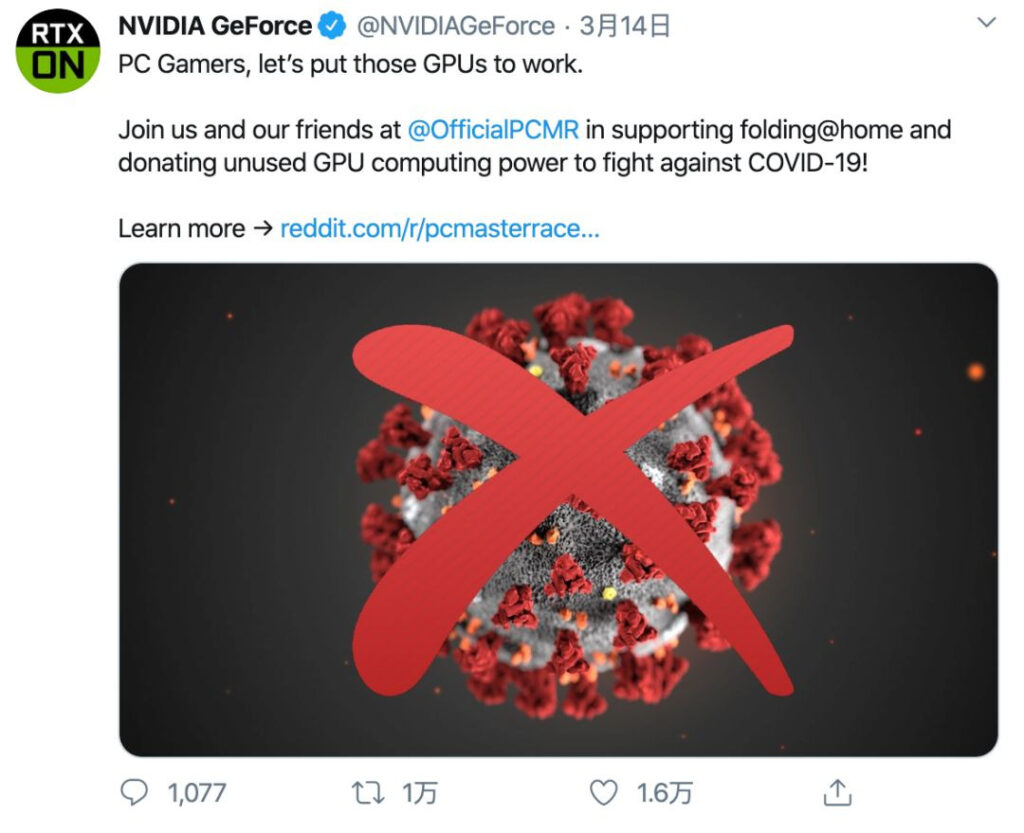
Nvidia's tweet has aroused heated response from the entire network
Although everyone's computer computing power is limited, through a distributed processing computing network, participating users will form a powerful network that can effectively solve scientific problems that require computing power.
Simply download and run the program to become part of the network and use your computing resources to run and process scientific calculations related to the new coronavirus, simulate the dynamic changes of COVID-19 proteins, and accelerate the development of therapeutic drugs and vaccines.
This is not the first time to link global computing power
Behind this seemingly simple operation is a large-scale distributed computing project that has been developed for nearly two decades, Folding@home (address: foldingathome.org/start-folding).
Folding@home is a project started by researchers at Stanford University in 2000 that focuses on accurately simulating the processes of protein folding, misfolding, and aggregation in order to better understand the causes and progression of a variety of diseases.

However, research on protein molecule folding requires a large amount of computing. The approach of this project is to mobilize people from all over the world to participate and form a huge distributed computing network to solve the problem of insufficient computing power.
This distributed computing method has proven to be extremely useful in scientific research and has completed computing tasks for multiple projects, such as in-depth research on Alzheimer's disease, mad cow disease, and brittle bone disease.
On February 27, 2020, Folding@home announced that it had joined the coronavirus research to help researchers develop treatments.
Specifically, the program attempts to calculate all states of viral protein movement and folding in order to understand the specific mechanism by which the virus infects the human body and lay the foundation for further research and treatment.
On March 10, the program updated its announcement and released the first batch of computational packages for analyzing the surface proteins of the new coronavirus. Next, the analysis of surface protein folding and structure will be carried out to help the drug development and vaccine research of the new coronavirus.

The announcement also stated that all data calculated in the end will be released publicly through GitHub so that researchers around the world can benefit from it.
https://github.com/FoldingAtHome/coronavirus
Don't just wait and see, join in!
Currently, Folding@home’s coronavirus computing package can only run on GPUs. Those who meet the requirements can download the software at foldingathome.org/start-folding and run it on their computers.
By customizing options and setting some parameters, such as the running time period and the resource efficiency that can be contributed, the program can run automatically and be added to the calculation of virus research.
If you have idle computing power and want to contribute to the fight against the epidemic, you might as well run your GPU!
-- over--
